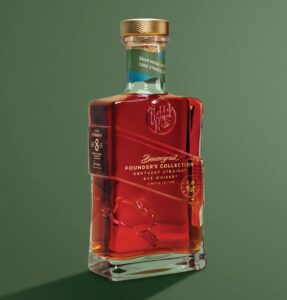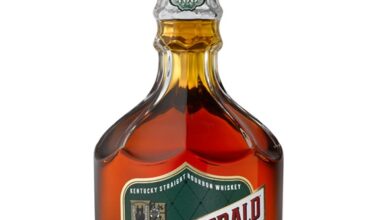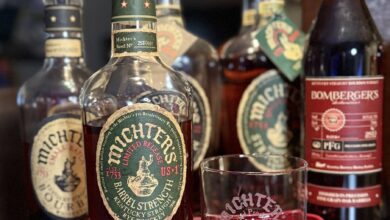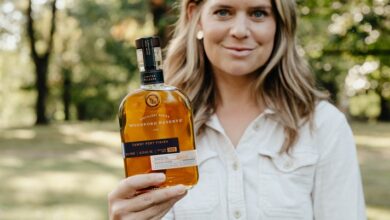Rabbit Hole Boxergrail Founder’s Collection Cask Strength Rye Whiskey (2024)
By Richard Thomas
Rating: B

(Credit: Rabbit Hole)
Louisville’s Rabbit Hole Distillery is both one of the newcomers to Bluegrass whiskey and at the same time part of its new class of medium-sized distillers (distinct from both the legacy and new “Kentucky Majors” and the small producers typically associated with craft whiskey). Considering the company went from foundation to acquisition by Pernod Ricard in a space of just seven years, I’ve always felt they were started with an eye on being bought out in the first place. It’s the blink of an eye in whiskey terms. That hasn’t stopped them from becoming a fixture of Louisville’s Nulu district or the wider Kentucky bourbon scene.
The company launched Boxergrail, which despite being three years old has a few process tweaks that promise to distinguish it from the company’s standard rye whiskey. Contrary to what some forum dwellers think, Rabbit Hole’s rye may be a derivative of MGP’s ubiquitous 95% rye stock, but it has never come from that Indiana distillery. Although never officially confirmed, it is generally known that it was initially made under contract with New Riff in Newport, Kentucky before the company had its own plant up and running. Larry Ebersold, former Master Distiller of what is now called MGP (his stewardship was back in the Seagram era), consulted for both companies.
Those tweaks include lowering the entry proof, which means more water in the barrel. That is an important shift in the chemistry of maturation, but not an economical one. Michter’s, for example, is firmly committed to their 103 entry proof, far below the standard used at most of the Kentucky Majors for their regular production. The barrels are both well-toasted and charred, which is also an expensive, almost boutique choice to make, and the brand is a small batch. Some nerds scoff at the term, and it is ill-defined and open to abuse, but here Rabbit Hole has said that means batches of 15 barrels or less. So, what Rabbit Hole is doing in terms of barrel selection and blending application is consistent with the original intent of the term as coined in the 1980s.
In terms of name, Rabbit Hole founder Kaveh Zamanian must be a fight fan: it’s a nod to Louisville’s boxing legacy. That is an interesting choice, given the town is best known as the Derby City. It’s most famous for Muhammad Ali, but was also the hometown of Ali rival Jimmy Ellis; a heavyweight champion from the very early 20th Century named Marvin Hart; and Adolpho Washington, who was born in Lexington, but living in Louisville during his cruiserweight contender and championship years in the 1990s. The regular version is 95 proof, but this Founder’s Collection cask strength version is older at 8 years and stronger at 103.8 proof (if that sounds low for a cask strength, recall the lower entry proof at the start of maturation).
The Whiskey
A pour of this Boxergrail takes on a middling amber look in the glass, and I found the nose rather faint at the outset. Giving it some time to air brought the scent out better. Although the nose led with a caramel nougat, apples and berries current, there were light traces underneath that were Scotch-like, as the minor notes of wood were bound up with cereals and grassiness. The flavor turned decisively away from that unamerican direction, however, centering itself on caramel and candy corn, with the woody undertones taking on nuts and herbal partners for that stage of the experience. The finish brought the wood to the forefront, running light, but oaky.
The Price
Online retailers are listing this current version of the Founder’s Collection Boxergrail at between $250 and $350.



